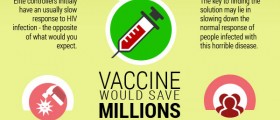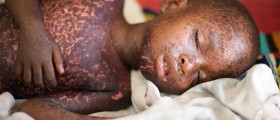
What is chickenpox?
Chickenpox, a highly contagious disease caused by the varicella-zoster virus, is incredibly common, especially during childhood. Though it can be rather uncomfortable, chickenpox is typically considered a mild disease that lasts for up to a week — and until recently, most children went through it.
The most common symptoms of chickenpox include:
- A red, itchy, skin rash that quickly starts forming fluid-rich "blisters" that subsequently cause scabs.
- A fever.
- A headache.
- Loss of appetite.
- Feeling weak, tired, and generally uncomfortable.
What are the possible complications of chickenpox?
Chickenpox has developed a reputation as a harmless childhood disease, but make no mistake — it can be serious. Infants, pregnant women, adults who haven't had the disease in childhood, and immunocompromised people are especially at risk of complications. You may be surprised to learn that somewhere around 10,000 people used to be hospitalized for chickenpox in the United States alone, and up to 150 would lose their lives as a result of this disease annually.
Complications include:
- Pneumonia.
- Encephalitis (brain inflammation).
- Sepsis.
- Dehydration.
- Bacterial infections of ruptured blisters.
See a doctor for chickenpox if you (or your child) cannot breathe properly, if you vomit, if you feel dizzy, if your heart is beating faster than usual, the rash affects your eyes, you have a high fever, or you feel anything beyond a mild discomfort.
Prevent chickenpox, prevent complications: Get vaccinated
A safe and effective vaccine that protects those who receive it against chickenpox has been on the market since the 1990s — and this is why we spoke of chickenpox' almost universal appearance and the hospitalization rate in the past tense. This once common childhood disease has now become one newer generations don't have to go through.
It's not an automatic part of all national immunization programs, but is recommended for all children as well as adults who haven't yet had chickenpox in the United States. The vaccine will protect you from shingles, too. If you're an adult who is interested in being vaccinated against chickenpox, speak to your doctor — not everyone can receive the vaccine. It's contraindicated during pregnancy, for instance.
Note that it's still possible (though much less common) to get chickenpox even if you have been vaccinated, but the case is likely to be much milder, and you reduce your risk of complications by being immunized, too.

















Your thoughts on this
Loading...